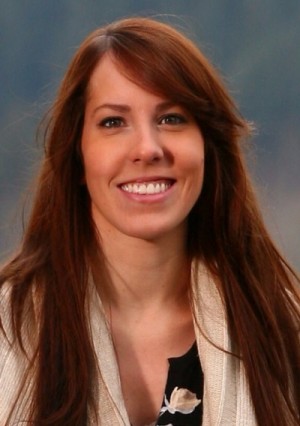 Dr. Alexandra Bond
Dr. Alexandra Bond
Southern Medical Program Class of 2015
Internal Medicine Resident PG-Y3, UBC, Vancouver
Tell us about your training
Internal medicine encompasses the non-surgical management of a variety of different disease states involving any of the organ systems. As a resident in Internal Medicine, our program is structured into one month blocks, during which we rotate through the various subspecialties (Cardiology, Intensive Care, Oncology, Rheumatology, Nephrology, Endocrinology, Hematology, Respirology, Palliative Care, Addictions Medicine, and Gastroenterology) and core General Internal Medicine/Clinical Teaching Unit Electives. A typical day includes rounding on all patients admitted to the hospital under your respective service (around 20 patients, more or less) as well as seeing any new consults throughout the day. Residents are given full responsibility for structuring the care and management of all their patients, under the guidance and supervision of the attending physician.
What attracted you to a career in medicine?
Medicine is a fascinating combination of human interaction and problem solving; a career in which communication and strong interpersonal relationships are vital, along with the skill set to gather important data and synthesize evidence-based medical knowledge to decipher each unique clinical case. I was intrigued by the art of medicine and determining how the application of medical knowledge pertains to the wishes, and expectations of each individual patient. To have the opportunity to make a meaningful contribution to the lives of others, not just through medical interventions alone but by listening to their concerns and hearing their diverse stories, appealed to me. Medicine is also a rapidly developing field of science and research. Each day is a new learning experience where exciting discoveries are made, and the learning continues throughout your career whether you are a medical student, resident, or staff physician.
Today in healthcare it’s important to…
Remember that you are treating a person, not just a disease. So often in medicine we lose sight of the fact that we are working with people at their most vulnerable moments in life, in an environment that is entirely foreign and intimidating to them. Patients have a justified need to be heard and informed every step of the way throughout the diagnosis and treatment of their medical illness. As health care practitioners, our job goes beyond solving the medical mysteries and providing the best evidence-based treatments. Medicine is not just a science; it’s an art. Attentiveness to detail, taking into account every unique patient case and the individual determinants of health that contribute to each distinct illness script, combined with good patient care and respect for the innate desire for people to feel well-informed and empowered in their medical care, encompasses the art of medicine.
What is the best professional advice you received?
“Be kind to people” and “Sometimes all patients need is a warm blanket.” A certain Emergency Medicine staff told me this on day 1 of medical school. I think it resonated with most people in our class. Being kind to your colleagues, other health care practitioners, and patients will make your work life exponentially more enjoyable by strengthening communication, collegiality, and cohesiveness in a positive work environment. Furthermore, the second quote is testament to the fact that oftentimes we cannot cure people of their disease, but we can offer them support, respect, and reassurance that we will continue to ensure their comfort and autonomy.
What is your favourite UBC Faculty of Medicine memory?
My favourite memory of the Southern Medical Program is working with all the great faculty members, physicians, and administrative staff. Everyone is incredibly supportive, which makes the steep learning curve all the more easy to climb. It is a rare experience to be able to work one-on-one with staff as a medical student and I am so grateful for all the unique learning opportunities I was able to experience because of UBC’s distributive program. I remember multiple instances where staff physicians from other services would find me around the hospital to teach me about or show me a unique case they had. As a junior learner, it made me realize how much the staff really care about trying to create the best hands-on learning environment and experiences possible, even if you aren’t even on their particular service!
What advice to you have for current medical students?
Be enthusiastic and keen to learn. It’s good to recognize the areas of medicine you are passionate about, but keep an open mind and your knowledge base broad. You have no idea how much it will help you once you are a doctor. Also, be kind to people.
Bucket list item?
In life? To fly a helicopter one day.